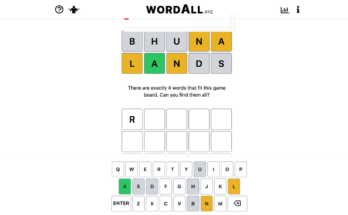Background tunes make Twitch streams more immersive and fun, but the platform has seen an increase in Digital Millennium Copyright Act (DMCA) infringement notifications targeting streamers playing recorded music during their streams. This uptick led to weeks of confusion, with streamers unsure of Twitch’s music policies and what they might mean for their channels if, or when, Twitch decided to crack down on any of their existing content.
DMCA infringement—even due to an innocent mistake—can result in demonetized streams, video takedowns, or even disciplinary action like loss of partnerships or account bans. Twitch’s updated FAQ page explains why the company is now taking these notifications more seriously and provides more details on its music guidelines.
Here are the most important parts of Twitch’s policies to keep in mind when you’re streaming games:
- You cannot play copyrighted music during your Twitch streams without a licensing agreement from the label or the recording artist.
- You should delete any previously-recorded videos—including past broadcast video on demands (VODs), Highlights, or Clips—containing copyrighted music, even if you have permission to play a song during livestreams. New licensing agreements are not retroactive and do not cover older videos unless you explicitly obtained permission.
- Stop using songs during livestreams and delete recorded content containing copyrighted music when any licensing agreements expire or change.
- Some artists may “grant” public permission to use their music during Twitch streams despite not actually having the authority to do so. Make sure you check who is responsible for a track’s licensing and obtain proper permission first (if you can).
- DMCA notifications are sent out when an algorithm recognizes music or other media owned by another company. These notifications can be sent erroneously, so make sure you respond with a counter-notification if you have your legal ducks in a row.
In short, don’t use music you don’t have permissions to play. If you’re not sure if you have permission, assume you don’t. Instead, check out one of several resources where you can get free (or affordable) professional-quality tunes for your streams.
Twitch’s Soundtrack tool, for instance, only plays tracks from artists who have a licensing agreement with Twitch. But note that while it’s a great tool for livestreams, Twitch Soundtrack music is not licensed for recordings. Streamers who archive their past broadcasts will either need to obtain the necessary license agreements themselves or use music that is already legal for video-on-demand (VODs). Search for “Royalty-Free” or “safe for streaming” music on Bandcamp, YouTube, Spotify, and other apps, or use online libraries like:
These resources should help you maintain the vibe you want for your streams and VODs without breaking copyright law.
G/O Media may get a commission
What about in-game licensed music?
Twitch says the vast majority of recent DMCA complaints were from record labels objecting to streamers using their tracks as background music. However, games like Fuser, Grand Theft Auto V, Tony Hawk’s Pro Skater, Rock Band, and others that feature copyrighted music as part of the game itself could pose a risk. Streamers should check the game’s End User Legal Agreement (EULA) to see if broadcasting or posting recorded gameplay is allowed. That might sound like a complicated process, but it’s actually pretty easy:
- Before streaming a game with licensed music, look up its EULA online.
- Use your browser’s search tool (CTRL+F on Windows, Command+F on Mac) and look for words like “Music,” “Stream,” “Broadcast,” “Licensed,” etc. until you find the information you need.
If your search is unsuccessful, the best solution is to not stream the game at all. If you do, be sure to mute any gameplay featuring copyrighted music—even if it leads to the quirky but hilarious requirement to stream a rhythm game on mute:
Perhaps what this really tells us is that it’s time for game developers, musicians, and streaming services to come together and figure out a fair and equitable licensing solution for amateur game broadcasts.



